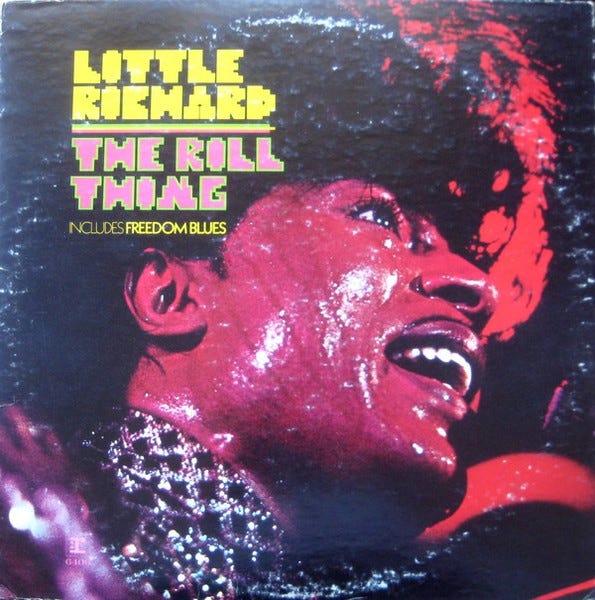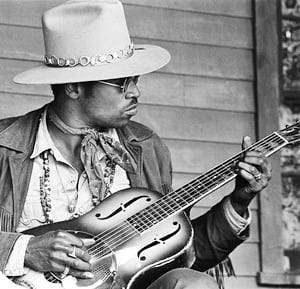Allman Brothers Band at Pittsburgh's Syria Mosque 1/17/71
The Allman Brothers Band once again released a Duane era show for Record Store Day. This year, they released a show that was in the first batch of ABB bootlegs I ever received.
I was already listening incessantly to the ABB’s commercially released material when I got my first bootlegs in the mid-1990s. I had nothing to trade for, so I sent two tapes to my dude Ron in what we called a “b&p”—blanks+postage. He sent me back seven cassettes, a treasure trove that included 1/17/71 Syria Mosque (listen here).
The original was a radio broadcast that’s long-circulated among collectors. I have no idea what generation my cassette was, might’ve been in the teens. I didn’t care. The sound wasn’t pristine, but it held magic: new Duane! I CONSUMED its every note.
As I wrote Play All Night! Duane Allman and the Journey to Fillmore East (buy it here), I thought a lot about my journey as a fan and how important tape trading was to my fandom.
Despite being on the road 300 days a year from 1969-71, there is a dearth of high quality recordings of the original ABB. Nearly all fans had, heard, and passionately dissected certain shows, Syria Mosque among them.
Here’s some context for the show…
THE VENUE
The Pittsburgh chapter of the Ancient Arabic Order of the Nobles of the Mystic Shrine (the Shiners) built the Moorish style theater at 4400 Bigelow Boulevard in Pittsburgh. It was a gorgeous venue, home to the Pittsburgh Symphony Orchestra, the Pittsburgh Opera, and the National Negro Opera Company. Opened in 1916 it hosted a wealth of talent across the spectrum including: Enrico Caruso, John Philip Sousa, Sam Cooke, and Public Enemy. Buddy Holly played Syria Mosque four times(!), Bob Dylan and Pink Floyd twice. Count Basie gave his final public performance there.1


THE BILL
The Allman Brothers Band were the middle act on a three-band bill. Taj Mahal opened and Little Richard closed the show.
After taking the first week of 1971 off, the ABB played gigs in Georgia, North Carolina, and Tennessee. They headed to Pittsburgh and Syria Mosque from Atlanta, where they played Municipal Auditorium (an $11,000 payday with overage). It was their first visit to the venue.
The band was paid $3750 for a 60-minute set, about average for January 1971.


THE SET
The shows that circulate from winter 1971 are essentially At Fillmore East rehearsals. The group played a tight setlist, working the songs out onstage every night. They were a band on the ascent, not quite reaching headlining status at every venue they were to play, including Syria Mosque. Duane and the band understood well the importance of a tight, blistering set in a spot like this. Not much time to wander.2
The Syria Mosque setlist contains seven songs spread over about an hour:
“Statesboro Blues”
“Trouble No More”
“Don’t Keep Me Wonderin’”
“In Memory of Elizabeth Reed”
“Midnight Rider”
“You Don’t Love Me”
“Whipping Post”
Song stats:
Four songs later appeared on At Fillmore East: “Statesboro” / “Liz Reed” / “YDLM” / “Whipping Post”
Five were previously released:
“TNM” and “Whipping Post” from The Allman Brothers Band
“DKMW” / “Liz Reed” / “Midnight Rider” from Idlewild South
Three were covers: “Statesboro” / “TNM” / “YDLM”
Dickey wrote “Liz Reed” and Gregg wrote the other three originals.
The newest song is “YDLM”—first appearing on a July 10, 1970 set from SUNY-Stonybrook.
“TNM” is the oldest, the first song Gregg sang upon joining the band. Here’s a demo from April 1969.
The band recorded “Statesboro” during the Idlewild South sessions but ultimately shelved it.
GENERAL THOUGHTS
I’m pretty partial to this set because it was one of the earliest Duane-era bootlegs I obtained. Though the sound has issues, it’s a preview of what’s to come with At Fillmore East.
Duane has moved the slide songs to the beginning of the set for good. “Statesboro Blues” / “TNM” and a fierce version of “DKMW” kick it off before the group jumps into more jammy territory with “In Memory of Elizabeth Reed” (an opening number less than a year earlier). “Midnight Rider” follows, then mammoth versions of “You Don’t Love Me” and “Whipping Post.” (No encore for the middle band this night.)
I love the between-song banter. This show starts with the emcee introducing the band as “Real people, the Allman Brothers,” playing off the “People’s Band” theme Phil Walden and company used to promote At Fillmore East several months later.
Even more special is the props Duane gives to Taj Mahal, whose version of “Statesboro Blues” inspired Duane to pick up slide in the first place. This was a habit for the band, who regularly called out their influences from the stage. Duane briefly quotes Jesse Ed Davis at 1:23 (listen to Davis at 1:37).3
In the quiet between “YDLM” and “Midnight Rider” listen as Duane calls for “Hot ‘Lanta,” which doesn’t appear on this set.
Duane is playful during the introduction of “YDLM,” a pretty fiery version with some head cutting between Duane and Dickey beginning around the seven-minute mark. (By At Fillmore East, they dropped the back-and-forth for longer solos for each guitarist.) Oh yeah, listen closely and you’ll hear Duane quote Jimi Hendrix’s “Voodoo Child” at 11:45.
FINAL THOUGHTS
Most noticeable to me is comparing each of the already-released tracks to their studio versions. The band plays with an urgency that comes through even on these somewhat roughly recorded tracks. For an example: “Whipping Post” from the first album versus the version from Syria Mosque. You can do the same with the studio version of “In Memory of Elizabeth Reed” from Idlewild South.
Sadly, Syria Mosque was torn down in 1991 to make room for a parking lot for the University of Pittsburgh Medical Center. It’s a pretty tragic tale. Read more from the Pittsburgh Post Gazette “Life and Death of the Syria Mosque.”
At Fillmore East will always be my go-to, but it’s endlessly fascinating to me to hear the band’s development. I’ve found that most of their live shows from early 1971 are of a really high caliber. The band is gathering momentum and practicing their ass off for the live album they’re fixing to record.
Nearly all of this background info came from Pittsburgh Post Gazette “Life and Death of the Syria Mosque” and Pittsburgh Music History “Syria Mosque.”
I’ll present a thesis on the ABB’s 1971 setlists at a later date.
Shoutout to my dude Andy who pointed this out to me.






